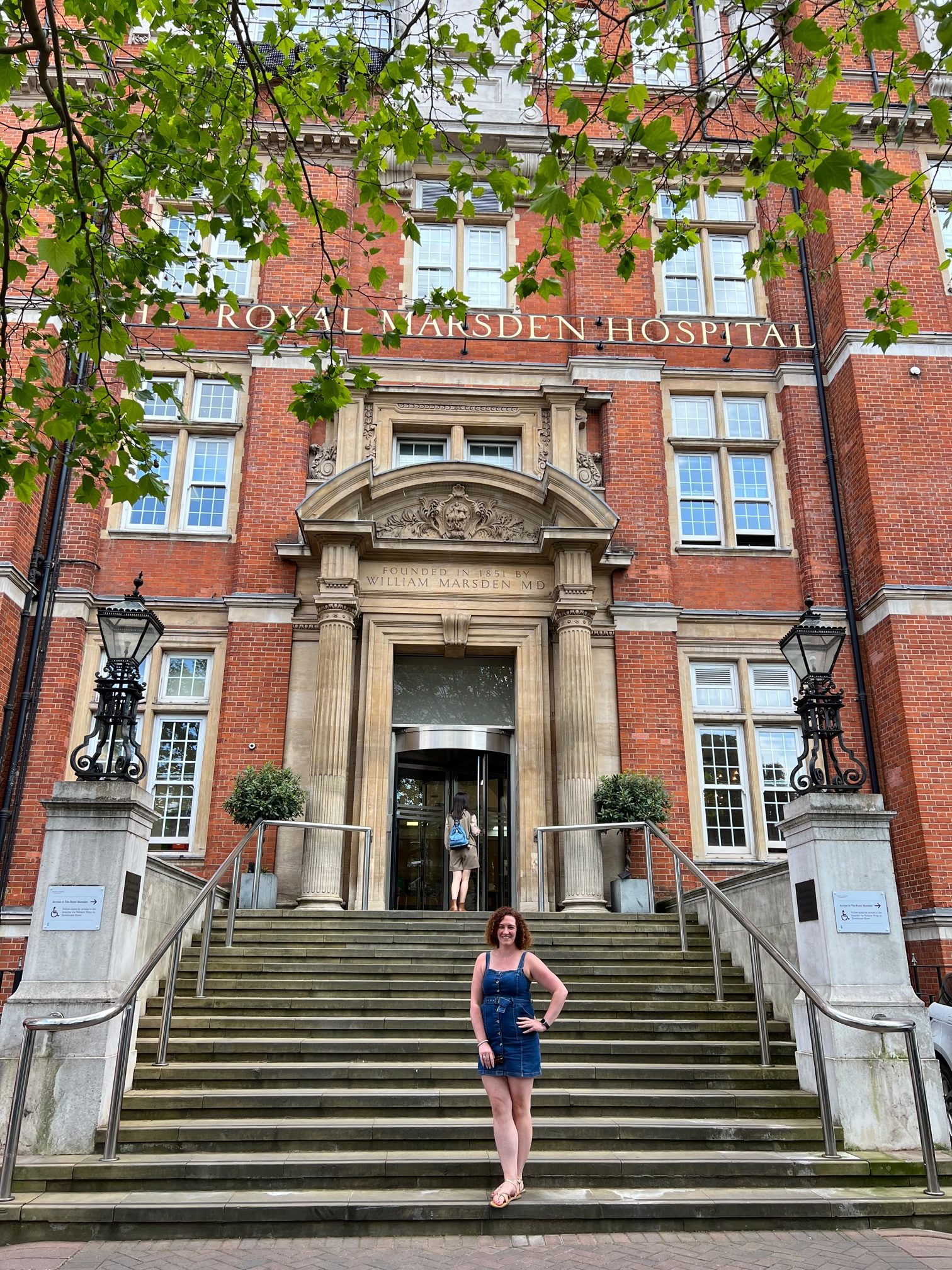Horsham-based female personal trainer, Becky, is a cancer exercise specialist, and recently attended an exercise oncology study at London’s Royal Marsden hospital. Here, she shares her thoughts on the experience…
Exercise oncology is a rapidly expanding field of work and study, which is operated by a huge range of professionals, from academics and exercise physiologists working hard to properly understand the impact of exercise on bodies which are affected by cancer, to the medical teams treating those people, and those in their communities (such as fitness instructors) who are attempting to help them to once again feel safe in their bodies. It’s a huge task, and one which requires a broad range of expertise.
Personal trainers are unfortunately often left out of the conversation about how to move the industry forward and reach more people, but that isn’t the case when it comes to the hospital which treated me. The Royal Marsden has a focus on inclusion, recognising that this is important for achieving the best results for those who matter the most – the patients.
And so it was that I came to attend my second of their annual Exercise Oncology Study Days in July 2024. I helped to introduce the day by saying much of what I’ve just said: I pointed out that it was me who drove the conversation about physical activity when I was a patient myself, but that this was only the case as I was already active, and certain things really mattered to me, so my previous experience of surgery came into play and I knew that I had to be prepared. I closed my statement with a call to action, asking those in the clinic to help those of us in the community to reach more people.
Presentations on the day included: a session on the immune response to cancer (Dr David Bartlett made an excellent attempt to relate immunology to a pop culture analogy… which I still didn’t understand thanks to a complete ignorance of Star Wars, so my Personal Trainer with an Arts degree brain had to work extra hard); a brilliant talk about co-location of services (the idea of putting exercise sessions on in locations where other clinics take place, meaning that patients are better able to access these sessions, and that participation is normalised and specialist); and a panel session on issues faced by the LGBTIQ+ community when seeking cancer care (academics – make sure that you let the community know that you would like them to be part of your studies!).
As a speaker had unfortunately had to drop out, I was also asked to participate as part of a panel discussion on the exercise oncology workforce. We received several questions which really stuck with me:
- Does the provision of wearables support an increase in physical activity? Our consensus was both “no” and “sometimes”. My take is that if you want to use a wearable (for example, a smartwatch), do so. But remember that their accuracy is questionable, particularly when it comes to metrics such as calories burned
- How do we encourage those who aren’t completing an exercise programme per the optimal prescription? My answer was to forget about “optimal”. Optimal is for the 1%. If someone isn’t completing what you’ve set them, the problem is with the programming, rather than the person. Find out what they can and will do. If you’d like them to do three sessions per week, can they do two? Or one? Because even one is better than none
- Where do we hope to be in five years time? My one-word answer was something I took a deep breath before giving – inundated. With cancer prevalence and occurrence as it is, specialist fitness instructors ought to be busy. We’re ready
My biggest realisation of the day came thanks to a discussion during one of the breaks with my own physiotherapist and a few of her colleagues. I recognised finally that fitness instructors do have a defined role within this sector. I can’t prescribe a drug, plan treatment, or perform surgery… but nor can the physiotherapists. They can’t write an ongoing exercise programme for someone’s recovery, and nor can a doctor. It was a powerful moment – my colleagues and I tend to be quite self-deprecating and are our own worst critics in terms of our intellect and qualifications, and yet we do play a significant role. Our expertise is unique to us, just as a surgeon’s is unique to them. We’re part of the process too, and I’m pleased when our voices are heard.
